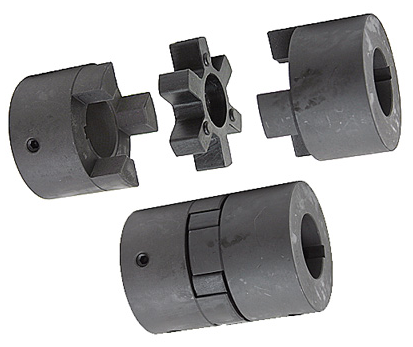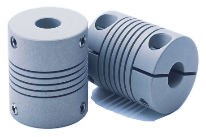Stepper Shaft Coupler
Introduction to Stepper Shaft Couplers
Stepper shaft couplers are integral components in various mechanical systems, essential for connecting stepper motors to driven elements. Their precise engineering ensures minimal backlash and optimal torque transmission.
Types of Stepper Shaft Couplers
There are several types of stepper shaft couplers available, each designed to meet specific application requirements. These include rigid couplers, flexible couplers, and helical couplers.
Rigid Stepper Shaft Couplers
Rigid couplers provide a solid connection between the motor and the shaft, ensuring no relative movement. They are ideal for applications requiring high precision and where misalignment is minimal.
Flexible Stepper Shaft Couplers
Flexible couplers can accommodate slight misalignments between the motor and the shaft. They prevent undue stress on components, thereby enhancing the longevity of the system.
Helical Stepper Shaft Couplers
Helical couplers offer a balance between rigidity and flexibility, featuring a spiral cut that allows for slight angular, parallel, and axial misalignments while maintaining torque transmission capabilities.
Material Considerations
The choice of material for stepper shaft couplers significantly impacts their performance. Common materials include aluminum, stainless steel, and engineering plastics, each offering unique benefits.
Aluminum Couplers
Aluminum couplers are lightweight and offer good corrosion resistance. They are suitable for applications where weight reduction is crucial.
Stainless Steel Couplers
Stainless steel couplers provide high strength and excellent corrosion resistance, making them ideal for harsh environments and heavy-duty applications.
Plastic Couplers
Engineering plastics like Delrin or Nylon are used for couplers requiring electrical insulation and lower torque applications. They are also resistant to chemical corrosion.
Design and Engineering of Stepper Shaft Couplers
The design of a stepper shaft coupler involves careful consideration of various factors, including torque ratings, misalignment accommodation, and material properties. Precision engineering ensures these couplers meet stringent performance standards.
Applications of Stepper Shaft Couplers
Stepper shaft couplers are utilized in numerous applications, from 3D printers and CNC machines to robotic arms and automated assembly lines, highlighting their versatility.
Installation and Maintenance
Proper installation and regular maintenance of stepper shaft couplers are crucial for optimal performance. This includes ensuring correct alignment, appropriate torque settings, and periodic inspection for wear and tear.

Benefits of Stepper Shaft Couplers
Utilizing stepper shaft couplers provides numerous benefits, including enhanced precision, reduced mechanical stress, and improved system longevity. These advantages make them indispensable in modern mechanical assemblies.
Choosing the Right Stepper Shaft Coupler
Selecting the appropriate stepper shaft coupler involves evaluating the specific needs of the application, including load requirements, environmental conditions, and compatibility with other system components.
The Future of Stepper Shaft Couplers
The ongoing advancements in materials science and engineering are driving the evolution of stepper shaft couplers. Future developments are expected to enhance their performance, reliability, and application versatility.
Conclusion
Stepper shaft couplers are critical components in many mechanical systems, offering precision and reliability. Understanding the various types and their applications can aid in selecting the best coupler for any given application.
What are the three types of coupling?
Couplings are essential in connecting two rotating shafts. The three primary types of couplings are rigid couplings, flexible couplings, and fluid couplings. Each type serves a specific purpose and offers distinct advantages in different scenarios.

What coupling is used to connect two shafts?
To connect two shafts, flexible couplings are commonly used due to their ability to accommodate misalignment and absorb shocks. Parameters and conditions to consider include:
- Torque Capacity: Ensuring the coupling can handle the maximum torque without failure.
- Misalignment Tolerance: The ability to accommodate angular, parallel, and axial misalignment.
- Material Compatibility: Matching the coupling material to the environmental and operational conditions.
- Operating Speed: The coupling must perform efficiently within the speed range of the application.
- Environmental Factors: Consideration of temperature, humidity, and potential exposure to chemicals.

What are the two general types of shaft couplings?
The two general types of shaft couplings are rigid couplings and flexible couplings. Rigid couplings provide a fixed connection with no allowance for misalignment, ideal for applications requiring precise alignment. Flexible couplings, on the other hand, can accommodate various types of misalignment and are used in applications where there is some degree of movement or vibration.
About HZPT
HZPT, located in Hangzhou, Zhejiang Province, is a modern enterprise integrating R&D, production, learning, and international trade. We uphold our core values with “integrity” as our management philosophy, emphasizing unity, progress, and innovation. Combining high-tech development, international trade, industrial investment, and domestic and international networks, we focus on the research and innovation of coupling products. Our business spans Asia, Europe, Africa, and North America, as we strive to become a globally influential international group.
We specialize in producing gear couplings, spring pin couplings, serpentine spring couplings, universal couplings, star couplings, expansion couplings, diaphragm couplings, and tire couplings. Our comprehensive and scientific quality management system, along with our R&D and testing departments, ensure the highest standards. We hold certifications such as CQC, ISO, and CE. We provide excellent sales services and technical support to our customers, working with over a hundred corporate partners. Adhering to the business philosophy of “people-oriented, customer first,” we collaborate with our clients for mutual development.
Our Products and Services
We at HZPT are proud to offer a wide range of shaft coupling products. Here are five key advantages of our products and company:

- Quality Assurance: Our couplings are produced under strict quality control measures, ensuring durability and reliability.
- Innovative Designs: We utilize advanced technology and innovative designs to meet the diverse needs of our clients.
- Customization: We offer custom solutions tailored to specific requirements, ensuring optimal performance for unique applications.
- Global Reach: Our extensive distribution network allows us to serve clients worldwide efficiently.
- Comprehensive Support: We provide exceptional technical support and after-sales service, ensuring customer satisfaction.